The former French President Nicolas Sarkozy was seen being applauded while dining at a Paris restaurant alongside his wife just a day after his release from jail.
After spending just 20 days in La Sante prison in Paris, Sarkozy, 70, was freed on Monday following an appeal court hearing. He arrived home in a car with blacked-out windows, which was escorted by police on motorcycles.
But on Tuesday afternoon, the former president took a jog around his Paris home before heading out to the four-star Le Flandrin, just minutes from the Place du Trocadero.
He was joined by his supermodel-turned-singer wife, Carla Bruni, with the pair stepping out of a black Renault Espace outside the eatery.
Footage captured outside Le Flandrin showed Bruni greeting supporters as Sarkozy ushered her through the door.
The couple spent more than an hour in the restaurant before they got up to leave sparking a ripple of applause among fellow diners. Some could be heard shouting ‘bravo’ and ‘justice’ as they left the restaurant.
Sarkozy is said to have declined an invite from President Emmanuel Macron to attend the Armistice Day ceremonies after spending three weeks behind bars.
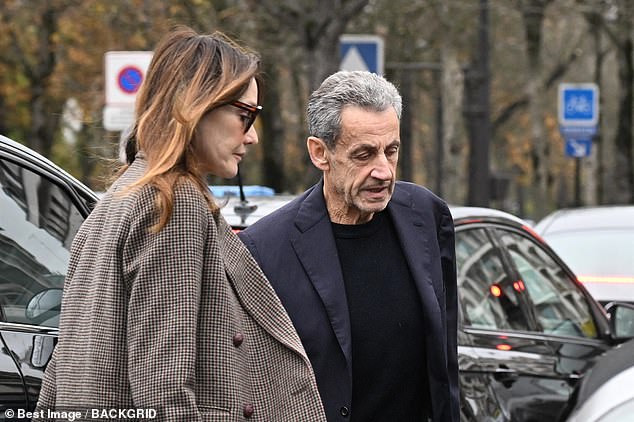
On Tuesday afternoon, the former president reportedly took a jog around his Paris home before heading out to the four-star Le Flandrin, just minutes from the Place du Trocadero
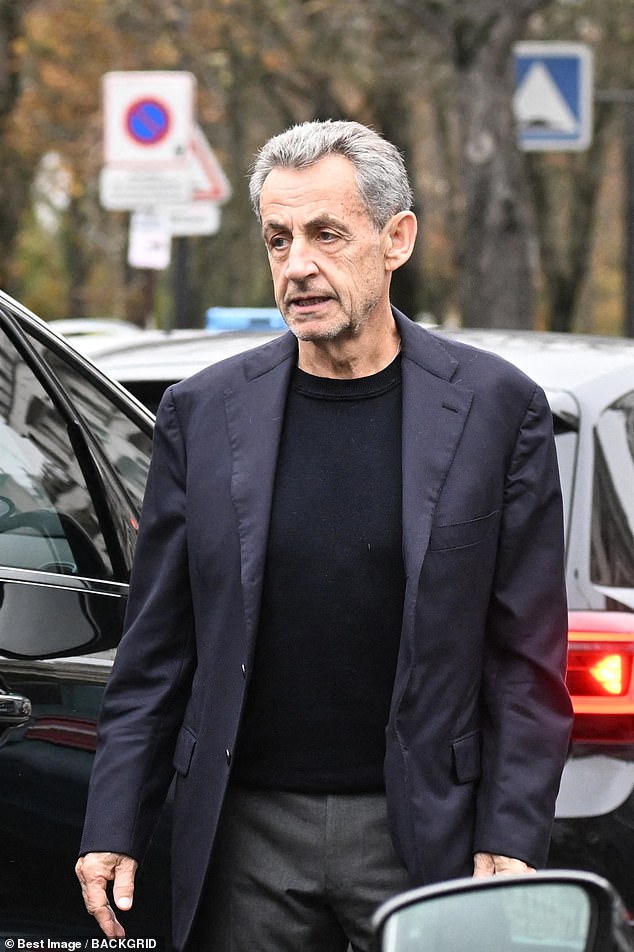
Nicolas Sarkozy and his wife Carla Bruni had lunch at Le Flandrin restaurant in Paris the day after the former president’s release from prison
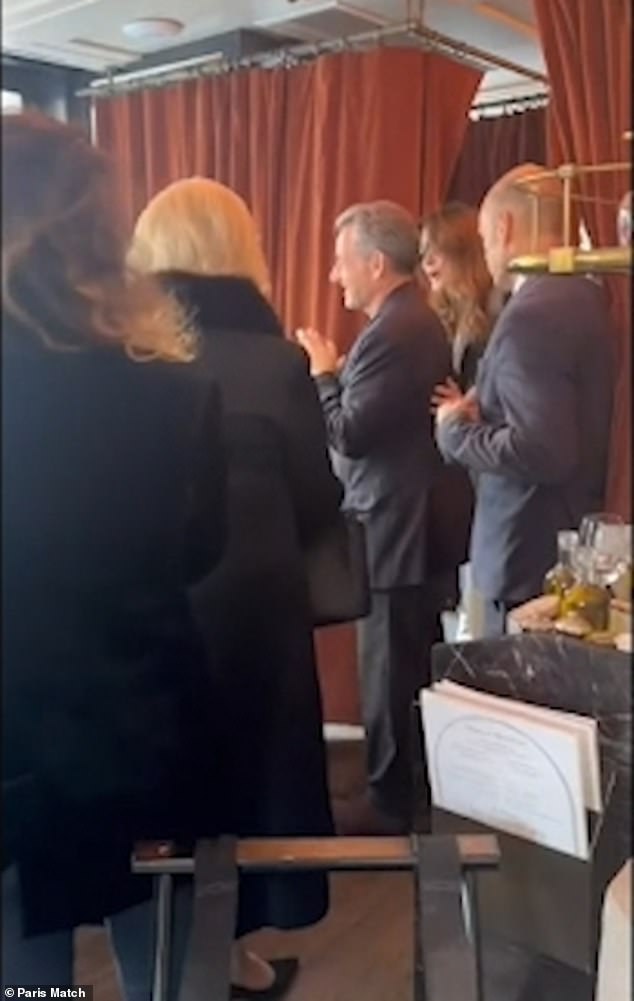
The former French President Nicholas Sarkozy and his wife received a round of applause as they left the Le Flandrin restaurant in Paris on Tuesday
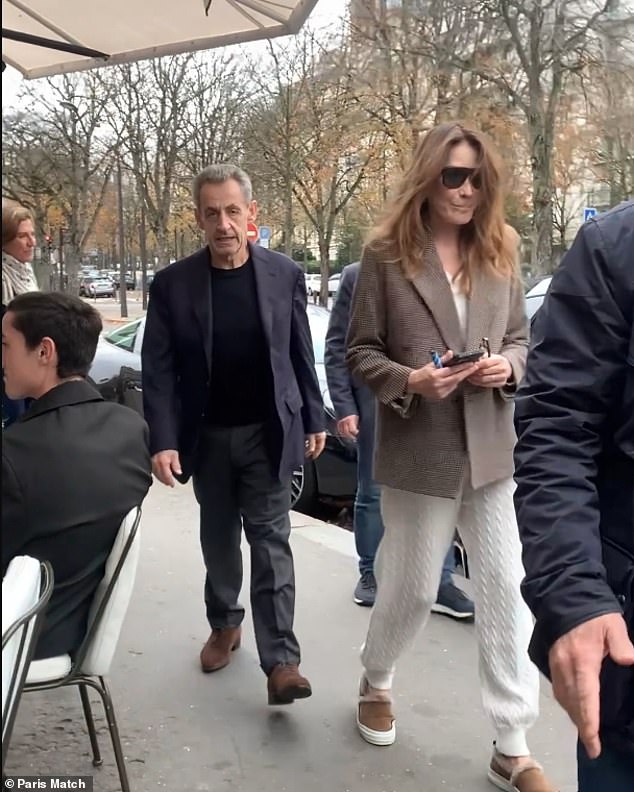
Sarkozy had reportedly declined his invite from President Emmanuel Macron to attend the Armistice Day ceremonies after spending three weeks behind bars
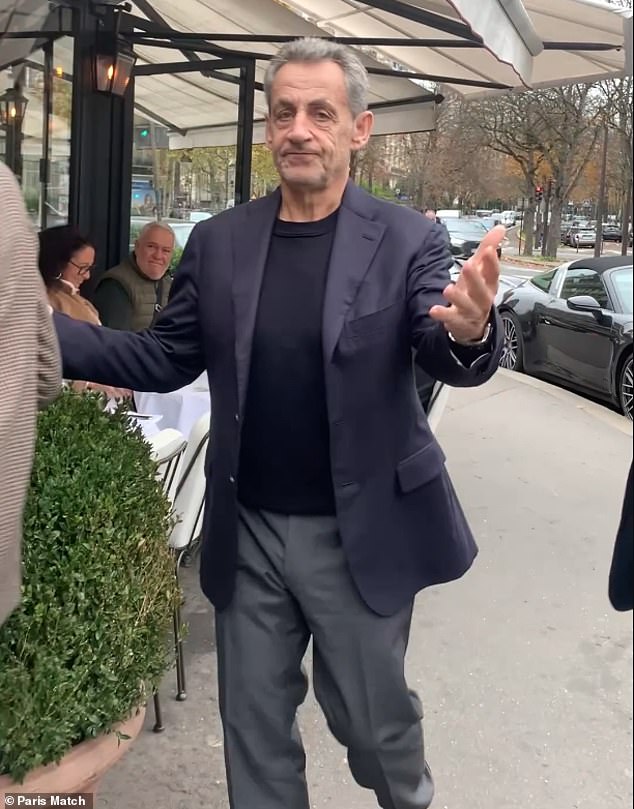
Since his release from prison, Sarkozy has been placed under judicial supervision and will also be banned from leaving French territory, the court said yesterday
Since his release from prison, Sarkozy has been placed under judicial supervision and will also be banned from leaving French territory, the court said yesterday. An appeal trial is expected to take place in March.
The former head of state will now be able to resume his routine activities outside of dining with his family, including attending his office in Rue de Miromesnil to receive visitors, prepare for his appeal trial and answer correspondence.
During his incarceration thousands of letters were sent to Sarkozy. ‘No letter will go unanswered. The end of the story is not yet written,’ a source close to the former president told Paris Match.
Sarkozy also revealed to the French magazine that he will dedicate his time to writing his book, as well as spending time with his family.
‘I have a title in mind, the rest, I don’t know. I’m my own first reader. However, I can tell you it won’t be a novel,’ he said the day before his incarceration.
His son, Louis, reacted to his release by sharing a picture of himself as a child with his father with the caption: ‘Long live freedom.’
The former leader’s lawyer, Christophe Ingrain, told reporters: ‘Our job now, for Nicolas Sarkozy and for us, is to prepare for this appeal hearing.’
Sarkozy, 70, served just three weeks of a five-year sentence for criminal conspiracy in a scheme to finance his 2007 election campaign with funds from Libya, after striking a deal with the country’s long-time ruler Muammar Gaddafi.
Investigators believe that in return, Gaddafi was promised help to restore his international image after Tripoli was blamed for the 1988 bombing of a plane over Lockerbie, Scotland, and another over Niger in 1989, killing hundreds of passengers.
The court convicted Sarkozy of criminal conspiracy over the plan. But it did not conclude that he had received or used the funds for his campaign.
Following his arrest, Sarkozy became the first former French head of state in modern times to be sent behind bars after his conviction on September 25.
He vehemently denies any wrongdoing and immediately filed for early release upon his arrest.
Sarkozy told the court he never asked Gaddafi for any financing. ‘I will never admit something I didn’t do,’ he said.
While incarcerated, reports emerged that he had received death threats, which began just a day into his sentence.
During Monday’s hearing, Sarkozy, speaking via video conference, complained that life behind bars was a ‘nightmare’.
‘I had never imagined I would experience prison at 70. This ordeal was imposed on me, and I lived through it. It’s hard, very hard,’ he said. ‘I would even say it’s gruelling.’
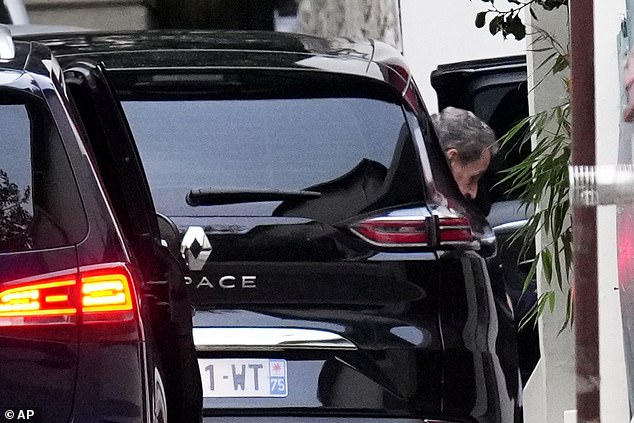
Sarkozy arrived home on Monday after being freed from prison. He has been placed under judicial supervision and is banned from leaving the country
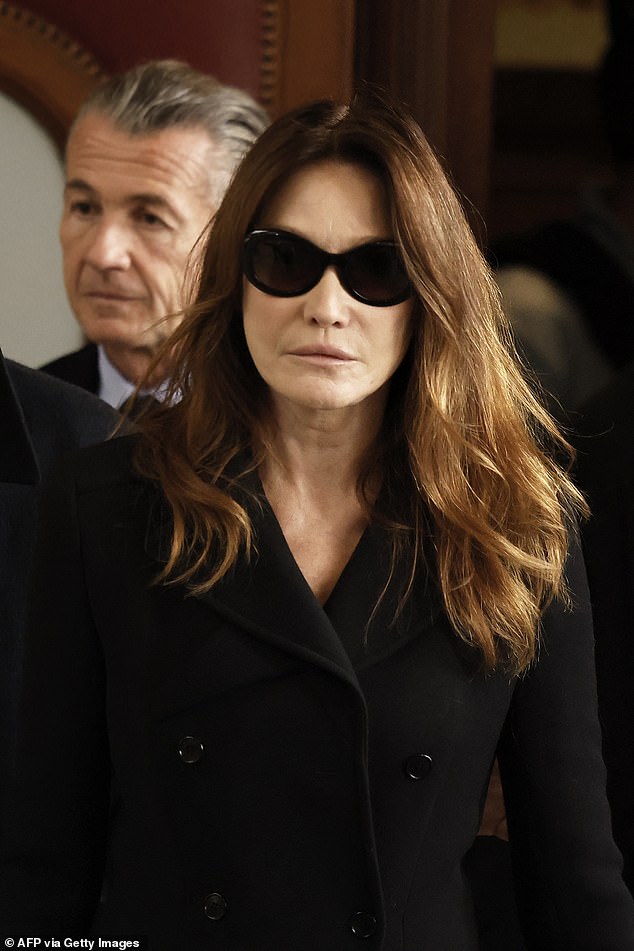
Carla Bruni-Sarkozy, wife of France’s former president Nicolas Sarkozy, leaves the Paris Court of Appeal on November 10, 2025
The former president also paid tribute to prison staff who he said helped make life behind bars ‘bearable’.
During his time in prison, Sarkozy was separated from the general population with two bodyguards occupying a neighbouring cell to ensure his safety.
Prison wardens have said the move was an insult to their profession, but Interior Minister Laurent Nunez said it was necessary in view of his ‘status’ and ‘the threats against him’.
Sarkozy, late last month, also received a visit from Justice Minister Gerald Darmanin, despite warnings from France’s top prosecutor Remy Heitz that it risked ‘undermining the independence of magistrates’ before the appeals trial.
As part of the conditions of the release, he has been banned from contacting Darmanin.
Sarkozy’s social media account last week posted a video of piles of letters, postcards and packages it said had been sent to him, some including a collage, a chocolate bar or a book.
On the day he entered jail, a large crowd sang the national anthem outside his home and urged him to ‘come back quick’.
The former president, who governed from 2007 to 2012, faces separate proceedings, including a November 26 ruling by France’s highest court over illegal financing of his failed 2012 reelection bid, and an ongoing investigation into alleged witness tampering in the Libya case.
In 2023, he was found guilty of corruption and influence peddling for trying to bribe a magistrate in exchange for information about a legal case in which he was implicated.
France’s highest court, the Court of Cassation, later upheld the verdict.

Dining and Cooking